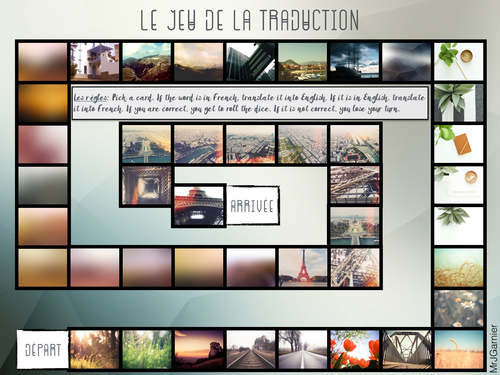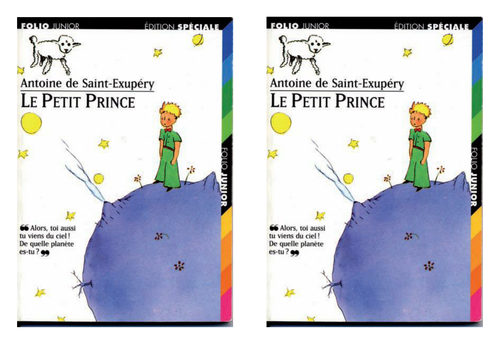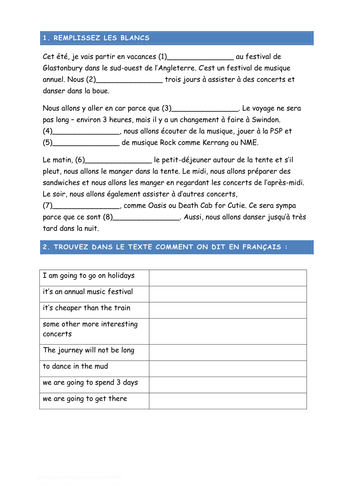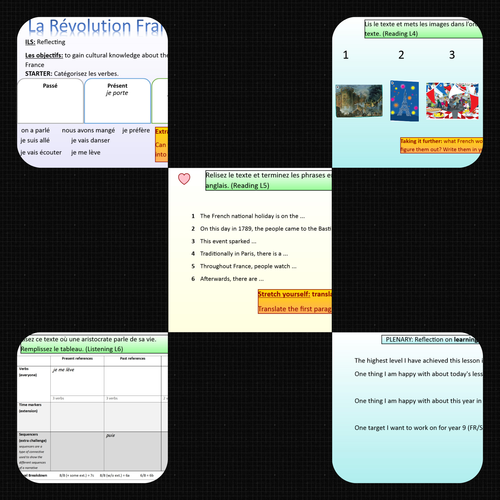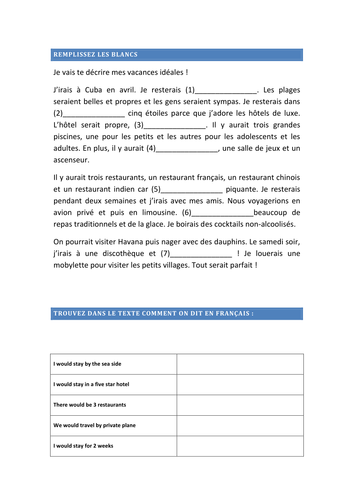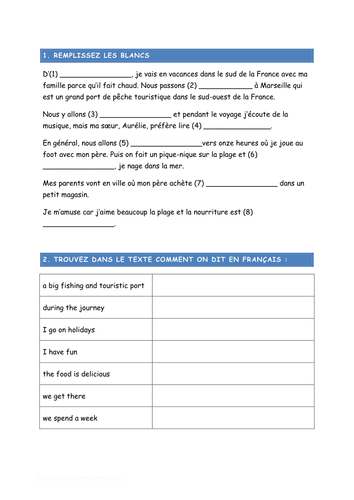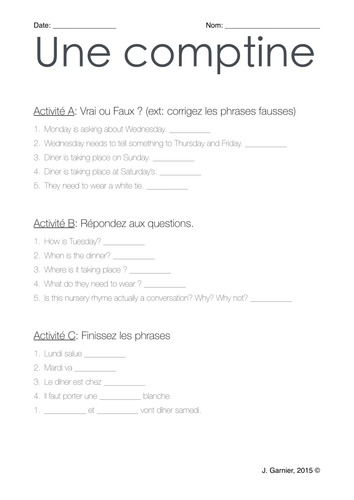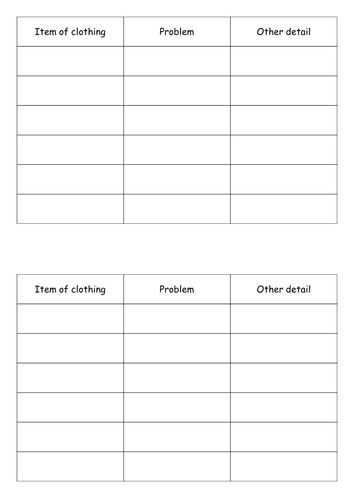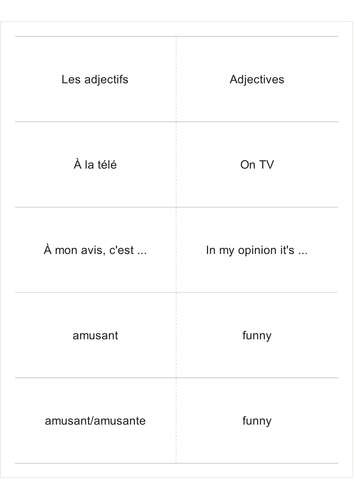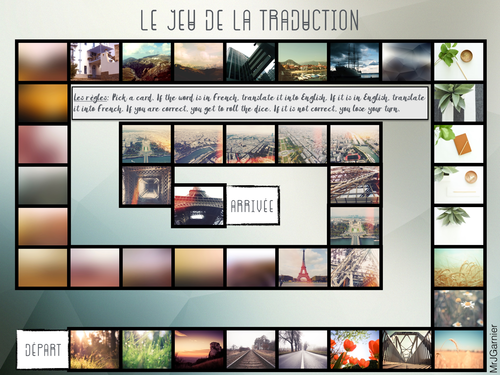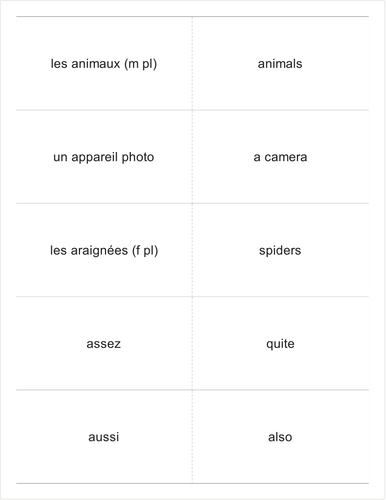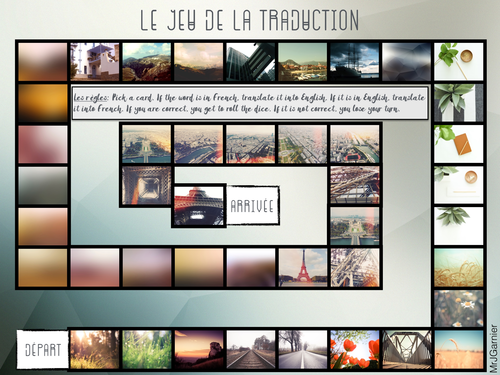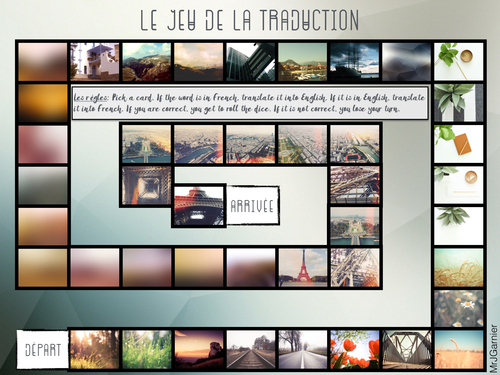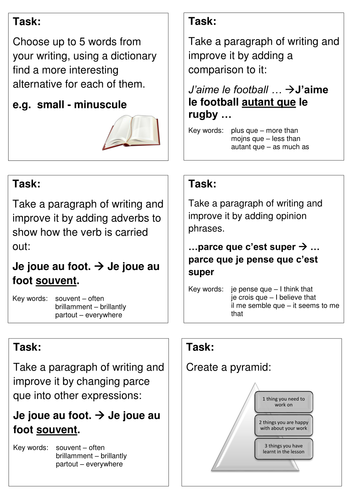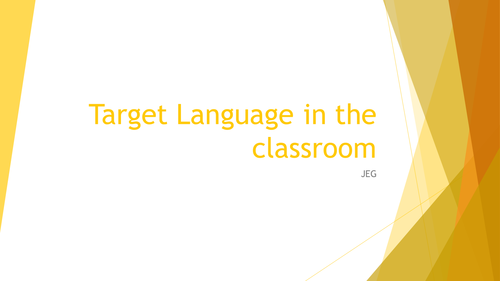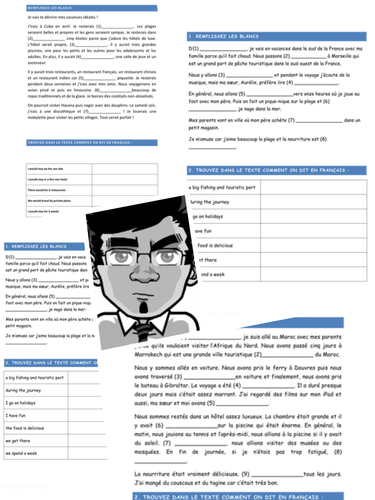
206Uploads
484k+Views
553k+Downloads

Definite and indefinite articles
A presentation about definite and indefinite articles in French with a few practice activities.

Avoir
A presentation on the verb avoir and different activities, including an interactive dice game at the end.

Le Petit Prince - French literary texts, analysis and study
*Notebook Files ONLY - No Powerpoint available*
This is a set of introductory lessons to Le Petit Prince (literature). I have created and used those resources to use with our more able year 11 students who have already done their French GCSE. They have thoroughly enjoyed the lesson. As they are planning to carry on with French at A-Level, this constitutes a perfect introduction to approach literature in a foreign language. This also serves as a trial for our next year's GCSE group and curriculum.
Lesson 01 focuses on the cover and the characters with various activities around the cover, the inside cover, the characters and the author's drawings.
Lesson 02 is about the dedication and has been split into two parts. The first part focuses on the importance of the dedication and the vocabulary for feelings. The second part focuses more the topics of the books presented in the dedication and a quick revision about plurals based on the dedication.
Lesson 03 is about the first encounter between the narrator and the Little Prince. It focuses on the loneliness of the narrator as his plane breaks down in the middle of the desert. It starts with a multiple choice questionnaire to ensure the students got the gist of the extract. It moves on to studying the solitude of the narrator and the impact it has on the story, making links with the dedications. The last part focuses on the feminine form (basic/general grammar) and a plenary, students have to rewrite an extract of the text in the "she" form, while also making other agreements (adjectival, pronouns, verb endings...).
Lesson 04
Lesson 04 picks up where lesson 04 left off. It focuses on the encounter between the Petit Prince and the narrator. It starts by looking into the loneliness of the narrator as a refresher. It then moves on to analysing the effect of surprise. The next part deals with the role of the reader in the extract with the use of the second person plural and the impact it has. There are two more stand alone parts (as my group is exceptionally able, they go through it very quickly): one is about the human senses and the second one is about the sound effect and the impact on the text. As a plenary, you look at the the character and the nicknames given by the narrator about the petit prince, looking into the etymology of the nouns.
UPDATE: Lesson 05
Lesson 05 focuses on the relationship between the little prince and the rose. A brief summary is offered to sum up what happens in between and to facilitate the study of this passage (if you are not focusing on the whole book). The first activity is the simple comprehension activity on very large piece of literary text (63 lines). with multiple choice answers to question in the target language. The second activity focuses on lexical items about the description of the rose, divided between qualités & défauts of the rose.

Mes vacances (future tense)
Presentation about holidays in the (near) future tense including a smartboard presentation (with an embedded video) and the worksheet for the listening (fill-in the gaps of the script) and the reading comprehension (find the French for...). I used it with my year 11 lower ability but it could easily be adapted to a higher ability group.

Mes vacances (conditional tense)
Presentation (inspired by a WJEC worksheet) about holidays in the conditional tense including a smartboard presentation (with an embedded video) and the worksheet for the listening (fill-in the gaps of the script) and the reading comprehension (find the French for...). I used it with my year 11 lower ability but it could easily be adapted to a higher ability group.

Mes vacances (present tense)
Presentation about holidays in the present tense including a smartboard presentation (with an embedded video) and the worksheet for the listening (fill-in he gaps of the script) and he reading comprehension (find the French for...).
I used it with my year 11 lower ability but it could easily be adapted to a higher ability group.

Une comptine - introduction to French literature
A lesson to introduce literature early in year 7 French (or in primary school if you are adventurous). It is based on a popular authentic French nursery rhyme. Each activity is differentiated. The lesson plan is very explicit but there is room for changes if you want to adapt some of the activities or change them.
This is a great way to introduce literature progressively early in KS3 based on the new National Curriculum recommendations. This will also allow an easier transition when literature becomes compulsory at KS4 in MFL in the new specifications. This is the first of a series of resources dedicated to the teaching of authentic literary materials in French.

La mode et les vêtements
A lesson on fashion and clothes. The starter asks students to find antonyms to adjectives. it is followed by an introduction of vocabulary (pictures and words can be revealed using the rubbed). Then, there is a listening comprehension (as a video, embedded). Followed by a reading comprehension based on a VOGUE article of Lady Gaga's fashion faux-pas (worksheet). The plenary is an 'Encore une fois' acitivity. ALL activities include extension. This lesson was rated as outstanding by both an Advanced Skills Teacher and an Excellent Teacher.

L'univers d'Harry Potter
PowerPoint version for visual support that we have used for a year 7 Gifted and Talented French day along with the updated booklet. I have also added a task that they had to complete at the end of the day. This can be used as a standalone day or as a series of lessons on to revise and practice school.

Studio 2 Vert Vocabulary Board Game
A board game to be printed.
The board is standard and is available as a PDF, a picture or a PowerPoint Slide (if you need to change or adapt).
The cards are available for Modules 1, 2, 3, 4 and 5 as separate lists or as a whole list for an End of Year game.
Enjoy :-)
Bundle

Studio French Vocabulary Board Games
A board game to be printed.
The board is standard and is available as a PDF, a picture or a PowerPoint Slide (if you need to change or adapt).
The cards are available for Modules 1, 2, 3, 4 and 5 as separate lists or as a whole list for an End of Year game for all Studio textbooks and schemes of work.
Enjoy :-)

Studio 3 Vert Vocabulary Board Game
A board game to be printed.
The board is standard and is available as a PDF, a picture or a PowerPoint Slide (if you need to change or adapt).
The cards are available for Modules 1, 2, 3, 4 and 5 as separate lists or as a whole list for an End of Year game.
Enjoy :-)

Studio 1 Vocabulary Board Game
A board game to be printed.
The board is standard and is available as a PDF, a picture or a PowerPoint Slide (if you need to change or adapt).
The cards are available for Modules 1, 2, 3, 4 and 5 as separate lists or as a whole list for an End of Year game.
Enjoy :-)

Studio 2 Rouge Vocabulary Board Game
A board game to be printed.
The board is standard and is available as a PDF, a picture or a PowerPoint Slide (if you need to change or adapt).
The cards are available for Modules 1, 2, 3, 4 and 5 as separate lists or as a whole list for an End of Year game.
Enjoy :-)

Studio 3 Rouge Vocabulary Board Game
A board game to be printed.
The board is standard and is available as a PDF, a picture or a PowerPoint Slide (if you need to change or adapt).
The cards are available for Modules 1, 2, 3, 4 and 5 as separate lists or as a whole list for an End of Year game.
Enjoy :-)

KS3 French Extension and Differentiation Wall
A display to be used as an extension wall. Students choose the kind of extension activities they want after having finished an activity.
It's easy to be mounted. You can laminate the cards if you want them to last longer. You can also add more cards in (the template in a word document).
I would recommend printing the poster on A3 card, laminated, and still plastic wallets using a glue gun or strong double sided tape.

Complete Display for encouraging use of Target Language in the classroom (with case study) French.
This is the result of a case study on how to improve and increase the use of spontaneous target language in the classroom by students. In this set of resources, you will find the rationale behind it (without videos for CP reasons) and the whole original display used based on "est-ce que je peux/nous pouvons..." as well as routines such as register, absence, lateness, justifications and comparatives.
It's great to mount the display progressively as you introduce the different elements to the students.
The other displays are posters for Time Markers (past, present and future), Opinions (positives and negatives), Quantifiers, Days of the Week, Months and Numbers from 1 to 100 that students can use as well during routines.
Bundle

Mes Vacances (My Holidays)
A bundle of four resources to help students talk about holidays in French in four different tenses (past, present, future and conditional).
It works really well not only with GCSE groups but also with higher ability KS3 groups.


